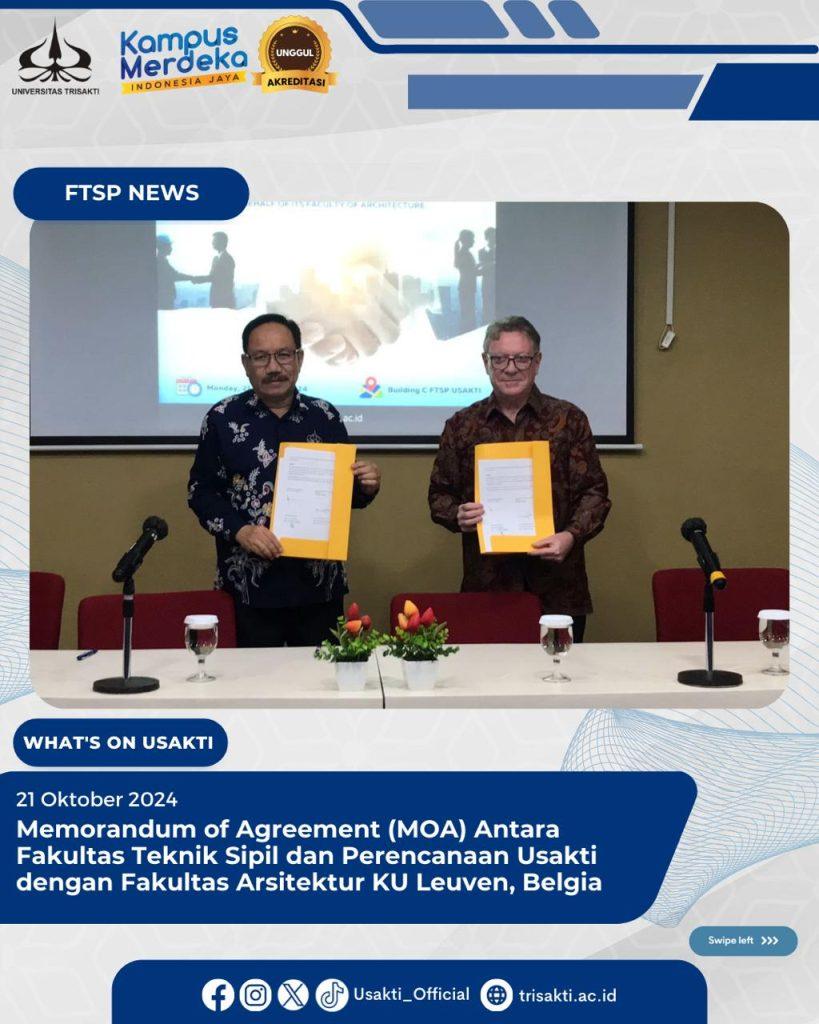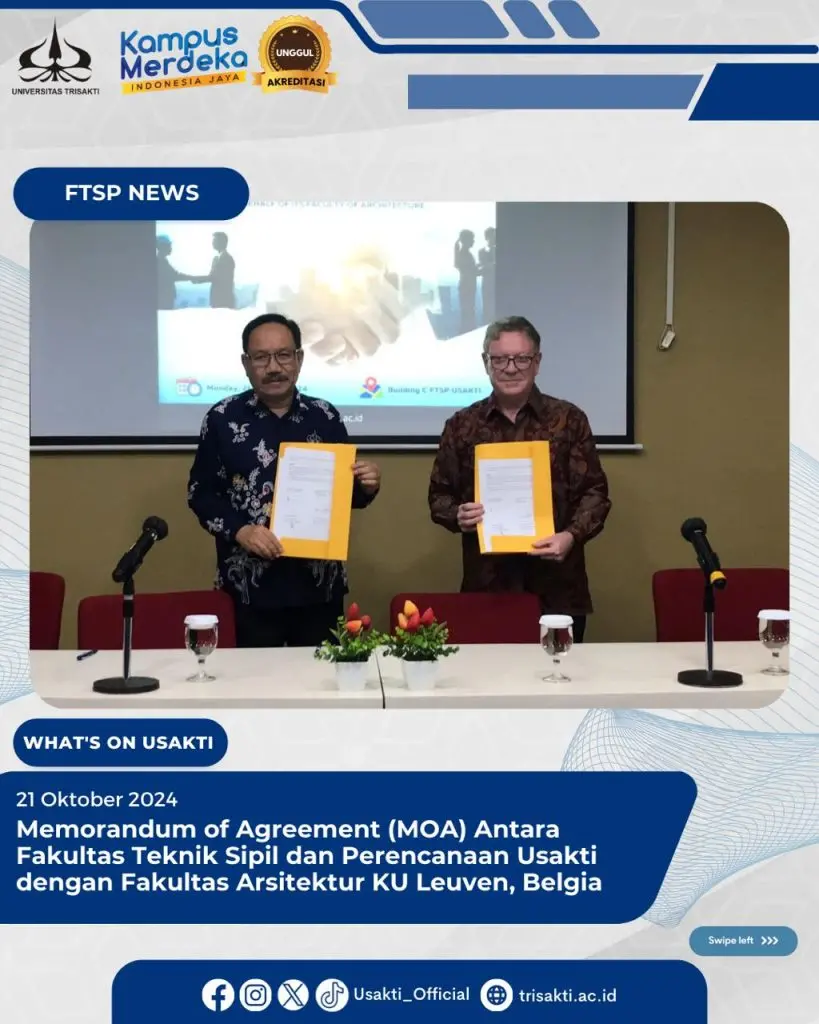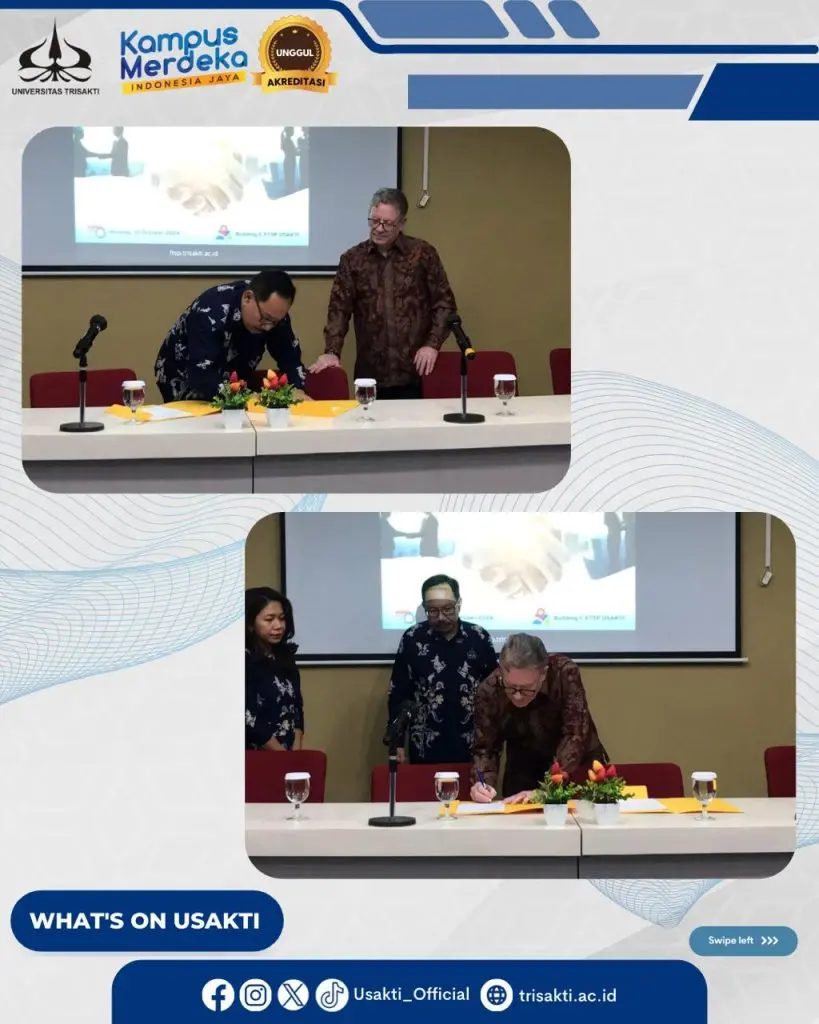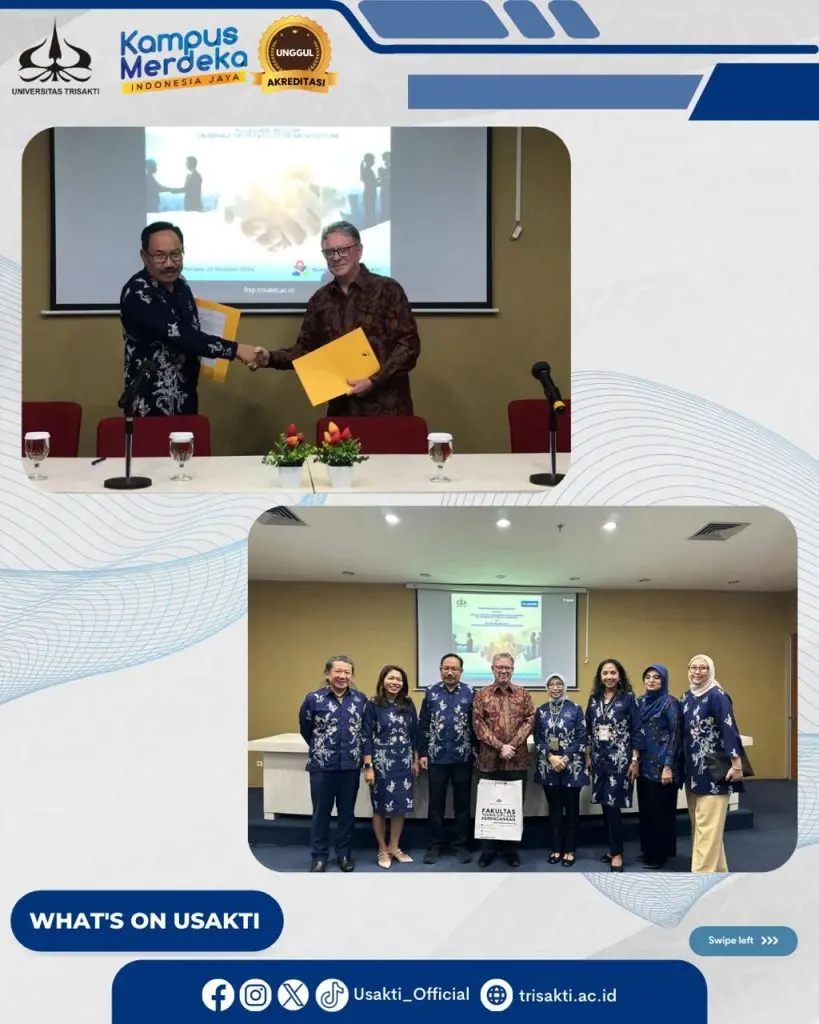Contact Us
- JL. Kyai Tapa No. 1 Grogol
- Jakarta Barat, Indonesia
- Phone:
- (62-21) 566 3232
- Whatsapp:
- (+62) 882 194 856 74
- (+62) 877 707 077 03
- Fax: (62-21) 564 4270
- Email: humas@trisakti.ac.id

On October 21, 2024, the Auditorium on the 9th Floor of Building C at Universitas Trisakti, Jakarta, hosted a significant event: the signing of a Memorandum of Agreement (MOA) between the Faculty of Civil Engineering and Planning (FTSP) Universitas Trisakti and the Faculty of Architecture at KU Leuven, Belgium. This agreement aims to strengthen academic collaboration in architecture, urban planning, and sustainable design, reinforcing both institutions’ commitment to global partnerships.
The event commenced with opening remarks from Prof. Dr. drg. Tri Erri Astoeti, M.Kes., FISDPH., FISPD (Vice Rector IV of Universitas Trisakti), Dr. Ir. A. Hadi Prabowo, MT (Dean of FTSP Universitas Trisakti), and Assoc. Prof. Dr. Koen De Wandeler (Chair of KU Leuven’s Southeast Asia Regional Committee). After the signing ceremony, keynote presentations were delivered by Assoc. Prof. Dr. Koen De Wandeler and Arumi Zanira, S.Ars, MSc, an alumna of Universitas Trisakti and participant in the international multidisciplinary summer school. Their presentations focused on the theme: Process and Lessons Learned from the International Multidisciplinary Summer School: Systemic Design for Health – Environmentally Sustainable Healthcare Facilities Resilient to Infectious Disease Outbreaks and Natural Hazards.
Key topics covered by Assoc. Prof. Dr. Koen De Wandeler included:
Meanwhile, Arumi Zanira, S.Ars, MSc, presented research on gender inclusivity assessments in healthcare facilities, focusing on two case studies:
As primary healthcare centers (PHC) play a critical role in public health systems, Arumi’s research emphasized the importance of inclusivity and social relevance in the design of healthcare facilities to mitigate disaster impacts.
This collaboration underscores the shared commitment to expanding knowledge and promoting sustainable development in health architecture, urban planning, and systemic design, while enhancing resilience in the face of global challenges.


